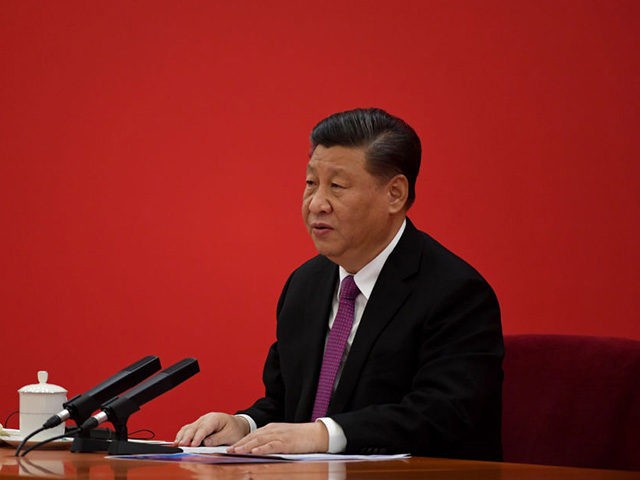Chinese dictator Xi Jinping called food waste “shocking and distressing” on Tuesday and urged his subjects to embrace “thrift,” while continuing his government’s insistence that China has plenty of food in storage thanks to ‘consecutive bumper harvests.”
China’s state-run Global Times quoted an “instruction” published by Xi that could be taken as an oblique admission that Beijing knows it could be facing a food crisis after months of drought, pests, heavy floods, and coronavirus lockdowns:
Xi stressed enhancing legislation and supervision, taking effective measures, and establishing a long-term mechanism to stop food waste.
It is necessary to further enhance public awareness of the issue, effectively cultivate thrifty habits and foster a social environment where waste is shameful and thriftiness is applaudable, Xi said.
Xi has attached great importance to food security and repeatedly called for promoting the social custom of practicing thrift and opposing waste. He has emphasized the need to stop food waste on many occasions.
The South China Morning Post seemed to think Xi’s firm “instructions” to avoid food waste were a tacit acknowledgment of the growing food supply issue in China, and perhaps the long-term impact of the ongoing trade war with the United States.
“Besides increasing investment in agricultural projects overseas, diversifying imports, and building up China’s agricultural business around the world, reducing food waste also means less reliance on imports and enhancing China’s ‘food power,’” said Zhang Hongzhou, a research fellow at the S. Rajaratnam School of International Studies in Singapore.
Zhang thought China would be able to manage the short-term food shortage created by the spring floods, but might have trouble in the long term because years of government subsidies have depressed prices for vitally-needed grain, encouraging farmers to grow more lucrative crops.
Another analyst, Beijing-based Hu Xingdou, suggested the Chinese government might be forced to admit it has been significantly under-reporting how much of its food supply is imported from other nations.
“The official data suggests that China imports about 20 percent of its food supply, but some academics estimated the actual volume may be as high as 30 percent,” Hu said.
The Heritage Foundation proposed another unexpected problem caused by the torrential floods: increasing imports to compensate for a food shortage might consume a large portion of China’s foreign currency reserves, which would divert funds away from the massive Belt and Road Initiative, an international infrastructure project upon which some developing countries have come to rely.

COMMENTS
Please let us know if you're having issues with commenting.